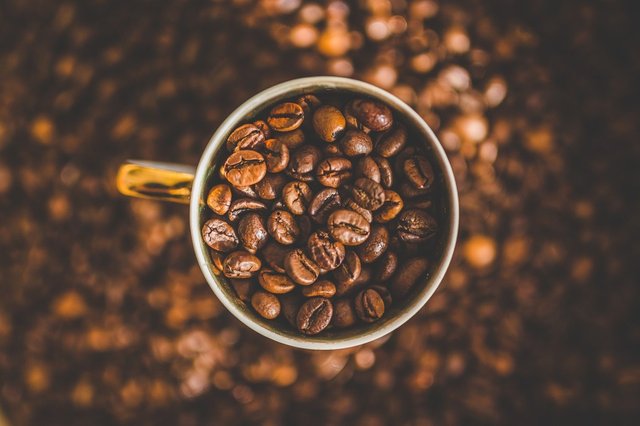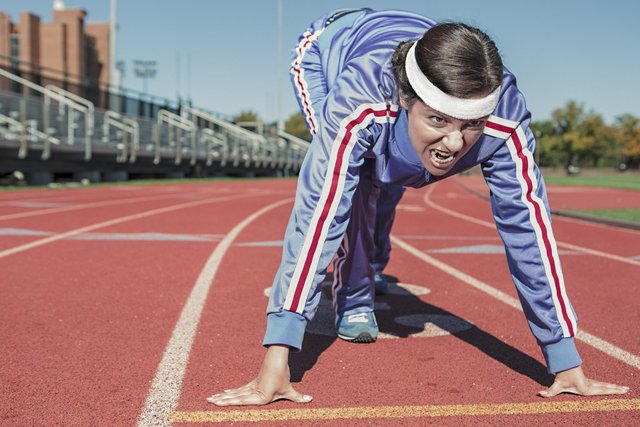Coffee, Weight Loss, and Exercise Performance
[Korean Version: 커피와 다이어트 그리고 운동 퍼포먼스]

An attractive news was introduced a few years ago in a popular American show 'The Dr. Oz' that taking green coffee bean extract would help losing weight. According to the 12-week experiment, the subjects lost about 17lbs. (7.7kg) when they took the extract while maintaining their normal lifestyle.
However, many medical experts have pointed out that this is a fallacy. Below The Doctors video is one of them.
Such criticism couldn’t overcome the influence of Dr. Mehmet Oz, a well-known celebrity in the medical field and also the host of the show. With his influence, the raw coffee bean diet became very popular throughout the States, and pill-like extracts were sold like hot cakes.
Does coffee really help with losing weight though? We can’t be sure of it yet as there isn’t enough study result proving caffeine has a direct relationship with weight loss. However, a recent series of experiments have shown that caffeine can provide some help in improving exercise performance.
The Effect of Caffeine on Our Body
Our body secretes a substance called Adenosine from the brain when we’re tired. The Adenosine then attaches to Adenosine receptor and slow down the activity of the nerve cell. This is how we feel drowsiness and fatigued.
When we drink coffee, however, caffeine from coffee binds Adenosine receptor instead. It ultimately awakens our body by awakening nerve and helping us not feeling tired and sleepy by blocking Adenosine to bind Adenosine receptor.

Arousal Effect and Exercise Performance from Caffeine
《The Conversation》, an online analysis specialist, has performed a comprehensive analysis of the relationship between caffeine and performance. As a result, proper caffeine intake improves exercise performance by about 3%. Caffeine revitalizes energy metabolism and boosts the level of concentration and endurance to help last longer in exercise.
Many amateur and professional athletes already take caffeine as an ‘Ergogenic Aid’, an athletic performance-enhancing substances.
Caffeine was once included in the banned drug list announced by International Olympic Committee (IOC), but it has been excluded since 2004 and is now on the monitoring list. According to a study, about ¾ of elite athletes enjoy drinking coffee.
One thing to keep in mind is that just like any other drugs, caffeine also causes dependency and tolerance. A person who has consumed coffee for a longer period of time need to take more and more caffeine to get the same effect. In addition, caffeine causes excessive diuretic action, sleep disturbances, and inhibits calcium absorption.

Still, If it is a Lifetime Physical Fitness Test
There is a study suggests that caffeine intake doesn’t have a significant effect on performance or endurance in a long-term, low-intensity exercise that normal people do. However, it would be a good idea to utilize caffeine to make some differences during an important physical fitness test. Though the efficacy of caffeine itself would be not much if one can feel any kind of placebo effect, wouldn’t that be good enough?
Coffee, tea, chocolate and energy drink contain a significant amount of caffeine even though they’re not an exercise booster. For example, a large size cup of coffee from a café contains more caffeine than a 1 dose of a booster. If your body already built tolerance against caffeine, it would be helpful to quit coffee for a few days before the test and take it right before it. But one thing to keep in mind is that since our body tends to exhaust during a stressful environment such as test, overdosing may be harmful to your heart.
References
- The Doctors. (2014). The Real Deal on Green Coffee Beans.
- Helen, A. (2017). The Effects of Caffeine on Adenosine. Livestrong.com. Retrieved from https://www.livestrong.com/article/481979-the-effects-of-caffeine-on-adenosine/
- Neil Clarke. (2018). Can coffee improve your workout? The science of caffeine and exercise. The Conversation. Retrieved from https://theconversation.com/can-coffee-improve-your-workout-the-science-of-caffeine-and-exercise-92366
- Cindy Kuzma. (2014). Are Olympic Athletes Legally Doping?. Men’s Health. Retrieved from https://www.menshealth.com/health/a19537652/caffeine-and-olympics/
- 삼성서울병원 임상영양팀. (2016). 카페인은 운동에 득일까 실일까. 삼성서울병원. Retrieved from http://www.samsunghospital.com/home/healthInfo/content/contenView.do?CONT_SRC=HOMEPAGE&CONT_SRC_ID=33641&CONT_CLS_CD=001021005003&CONT_ID=6206
- 수피. (2014). 헬스의 정석: 종합편. 롤링다이스.

오즈 박사, 꽤 유명하죠. 방송에서의 한 마디 한 마디 신중하게 해야겠네요.
전 커피를 안 마시는지라.. 운동하고 카페인이 든 초콜릿을 먹을까요? ㅎㅎㅎ 초콜릿은 좋아하는데!